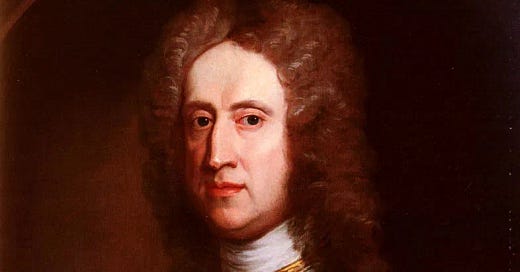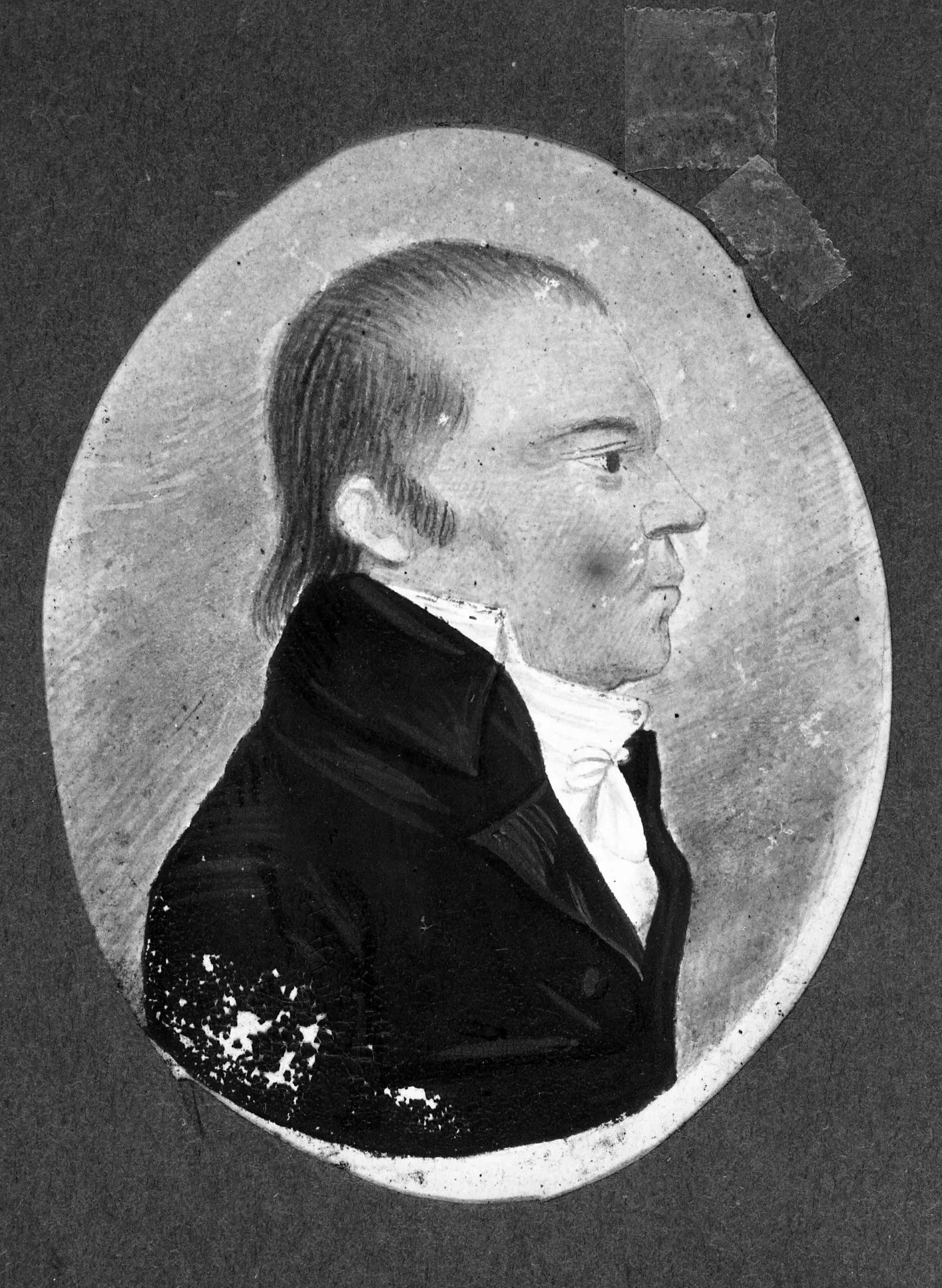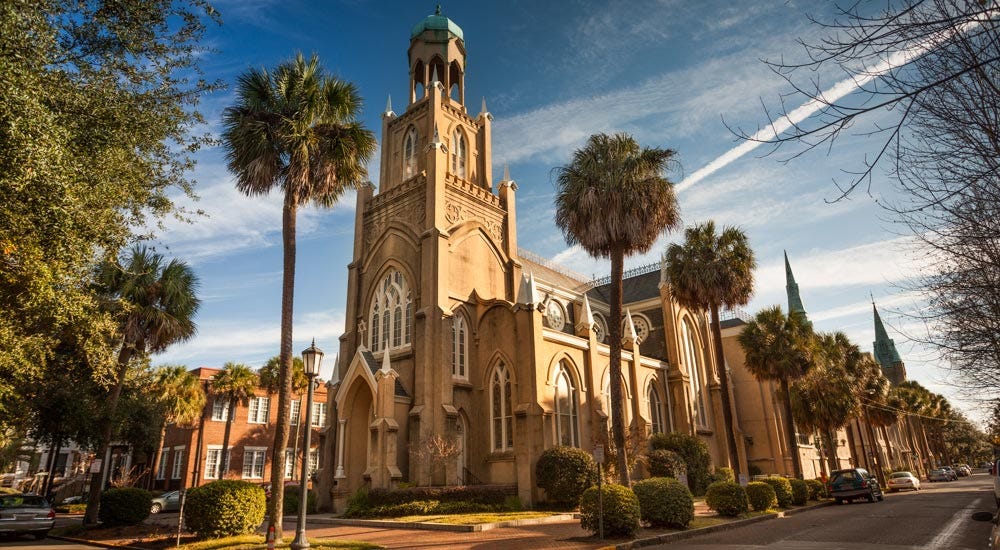Dr. Samuel Nunez: The Jewish Doctor Who Saved Savannah
In February 1733, James Oglethorpe arrived in Savannah with a charter from King George of England to establish the British colony of Georgia. Two months later, however, the colonists’ only physician died, and a few months after that, a deadly outbreak struck, threatening the survival of the fledgling colony, and the literal survival of its colonists. In July 1733, 14 colonists died (out of a total of 109 colonists). Then, by then end of the month, the epidemic – possibly yellow fever or a pandemic influenza, although its exact nature is uncertain – ended as quickly as it began. According to General Oglethorpe – the British-appointed governor of the colony – one man was responsible for ending the epidemic and saving the lives of the remaining colonists: Dr. Samuel Nunez.
Dr. Nunez – a Portuguese-born “converso” Jew – had arrived in Savannah by ship in mid-July 1733 with approximately 40 other Jews, most of whom were from Portugal, with some others from Germany. Dr. Nunez was born in Lisbon Portugal to a converso family; Spanish and Portuguese Jews who had forcibly converted to Catholicism during the 14th and 15th centuries, but continued to secretly practice Judaism, at the risk of expulsion or death. Dr. Nunez’ ancestors reportedly fled Spain in 1492 when King Ferdinand and Queen Isabella expelled from Spain all Jews who refused to convert. (King Manuel I of Portugal would do the same in 1496.) As a converso, Dr. Nunez was baptized as Diogo Nunes Ribeiro, attended a Catholic church, and outwardly practiced Christianity. On Friday evenings, however, Dr. Nunez and his family would retreat to their basement and perform ancient Jewish ceremonies to usher in the Jewish sabbath, as their ancestors had secretly done for generations.
Not much more is known about Dr. Nunez’ childhood or upbringing, but we do know that he became a very wealthy and prominent physician in Lisbon – perhaps the most prominent physician in Portugal – serving as the court physician for both the King of Portugal and the Grand Inquisitor. He owned a large home on the Tagus River, where he frequently entertained prominent guests.
But his wealth and prominence apparently made Dr. Nunez some enemies, who reported their suspicions of his secret Judaism to the Inquisition authorities. A spy for the Inquisition – posing as a servant – was placed in Dr. Nunez’ home and, after a while, the spy reported that he witnessed the Nunez family retreat to their basement on Friday evenings to usher in Shabbat. As a result, Dr. Nunez and his family were arrested, imprisoned, and tortured until they confessed to being Jewish. However, because the Grand Inquisitor was, at the time, in ill health and needed the services of his physician Dr. Nunez, the Nunez family was eventually released to a sort of house arrest, with two Inquisition officials permanently stationed at their home to ensure that they did not practice Judaism.
Dr. Nunez must have realized that it was only a matter of time before he fell out of favor and was sent back to the torture chamber, so he quickly concocted a plan for him and his family to escape his home country. According to a later account by Dr. Nunez’ great-great grandson Mordechai Noah (the prominent New York politician and journalist about whom I previously wrote), Dr. Nunez paid a British sailor – who he met at one of his lavish parties – a hefty sum to take him and his family from Lisbon to London by boat in a daring late night escape.
According to Noah, during a party, Dr. Nunez reportedly invited his guests to join him and his family on the ship. Before the guests knew it, they were speeding away from Lisbon on their way to London. Dr. Nunez apologized to his guests for the inconvenience, explaining why he decided to leave, and assuring them that they would be brought back to Lisbon as soon as he and his family were safe in London. Considering the distance between Lisbon and London, this story is likely more a creation of family folklore than reality, but we do know that Dr. Nunez and his family did eventually find their way to London, where the doctor and his sons were circumcised, he and his wife were remarried in a proper Jewish ceremony, and the doctor officially changed his name from Diogo Nunes Ribiero to Samuel Nunez.
When Dr. Nunez arrived in Savannah in July 1733, he was with his mother (Zipporah), 2 sons (Daniel and Moses), and daughter (Spira). His wife Rebecca either died before leaving London or for some other reason did not make the journey. Dr. Nunez was the only Jew to arrive on the William and Sarah to bring a servant. One of the other Jews who arrived on the same ship was Benjamin Sheftall, whose son Mordechai would eventually become the highest-ranking Jewish officer in the colonial forces, attaining the rank of colonel and fighting in the Revolutionary War. A few months after Dr. Nunez arrived in Savannah, another daughter and her family joined him. Her husband, Dr. Nunez’ son-in-law Abraham De Lyon, was a successful farmer and winegrower and is credited with introducing winegrowing in Georgia.
The arrival of Dr. Nunez and his fellow Jews in Savannah was not universally welcomed, to say the least. Captain Thomas Corain wrote to General Oglethorpe, protesting the Jews’ arrival and warning that “Georgia will soon become a Jewish colony.” General Oglethorpe – who unlike his compatriots does not appear to have harbored any ill feelings towards the Jews – consulted with lawyers in Charleston, who advised him that because Georgia’s royal charter only excluded “paptists” (Catholics), the Jews should be admitted. But when news of the Jews’ admission into the new colony reached the Royal Trustees in London a few months later, it caused a political uproar. The Trustees wrote to General Oglethorpe instructing him to use his “best endeavors that the said Jews may be allowed no kind of settlement with any of the grantees, the Trustees being apprehensive they will be of prejudice to the Trade and Welfare of the Colony.” People were so worried about the prospects of Jews settling in Georgia that a committee was appointed “to prepare for publication a statement on the matter, and to assure the public that the Trustees did not propose ‘to make a Jew’s colony of Georgia.’”
When Oglethorpe wrote back to the Trustees, informing them of Dr. Nunez’ work in stopping the epidemic and saving lives, the Trustees appear to have softened their stance, although they remained insistent that Jews not be granted any land. Oglethorpe apparently ignored this instruction because, by the end of 1733, several of the newly arrived Jews acquired land, including Dr. Nunez (who had brought “considerable funds” with him from London) who acquired 6 farms. (Oglethorpe’s main biographer wrote that his eventual defeat in Parliament in 1754 was due in part to his support for Jewish causes.)
By 1735, Dr. Nunez, his family, and his fellow Jews had founded the first Jewish synagogue in Georgia, Mickve Israel. Unlike the thriving synagogue that Mickve Israel is today, it was small back then, with no full-time Rabbi to lead services, leaving the congregants to take turns. One of the driving forces behind the foundation of Mickve Israel was the looming threat of assimilation and conversion; apparently at least some members of Savannah’s early Jewish community converted to Christianity fairly soon after arrival. Even Dr. Nunez’ sons were seen at a local Christian church from time to time. According to one historian, “[u]nquestionably it was the threat of missionary activity and its possible effect on their young people that brought the Jews to form a Congregation.”
Although Savannah’s early Jewish population was small, it wasn’t necessarily always united. As discussed above, some of the first Jews to arrive in Savannah were of Spanish or Portuguese descent (Sephardic) while others were of German descent (Ashkenazi). The Sephardic Jews were less strict in their adherence to religious tradition than the German Jews, almost certainly owing to the fact that they and their ancestors were forced to hide their Jewish identity for generations before arriving in the colonies. The Sephardic Jews also generally had more money than their Ashkenazi brethren. As a result, the Sephardic Jews tended to “look down” on the Germans, at one point even attempting to block the Germans from obtaining permission to open their own synagogue in Savannah.
Although Dr. Nunez may have thought he escaped antisemitic persecution for the last time when he left Europe for the New World, this unfortunately would not be the case. In 1740, England and Spain began to fight in Florida, and fear grew that Spain would attempt to invade Georgia. (Spanish forces did, in fact, attempt to invade Georgia in 1472, but were defeated by General Oglethorpe’s forces at Fort Frederica on St. Simons Island.) Because Dr. Nunez and his fellow conversos escaped Spain and Portugal due to antisemitic violence, the mere threat of Spanish invasion was enough for many of Savannah’s Jews to leave in 1740. In August of that year, Dr. Nunez and his family left for Charleston. According to records, all but a few Jews were left in Georgia by April 1741. After the threat of Spanish invasion subsided, many Jews eventually returned to Savannah, including Dr. Nunez’ two sons. In addition to his great-great grandson Mordechai Noah, Dr. Nunez’ many descendants also include Raphael Moses, a high ranking Confederate officer from Charleston, who served as a close personal confidant of Confederate General Robert E. Lee.
It is unclear whether Dr. Nunez ever returned to Savannah from Charleston or the circumstances and timing of his death. Many of his descendants, however, remain in Savannah and surrounding areas to this day.
Sources:
- The Settlement of the Jews in Georgia, Chas. Jones Jr., Publications of the American Jewish Historical Society, No. 1 (1893), pp. 5-12.
- The Jews of Georgia in Colonial Times, Leon Huhner, Publications of the American Jewish Historical Society, No. 10 (1902), pp. 65-95.
- New Light on the Jewish Settlement of Savannah, Malcom Stern, American Jewish Historical Quarterly, Vol. 52, No. 3 (March 1963), pp. 169-199.
- Oglethorpe and the Parliamentary Election of 1754, Rodney Baine, The Georgia Historical Quarterly, Vol. 71, No. 3 (Fall 1987), pp. 451-460.
- The “New Canaan”: The Jewish Experience in Georgia Part II, Louis Schmier, The Georgia Historical Quarterly, Vol. 73, No. 4 (Winter 1989), pp. 815-827.
- Dr. Samuel Nunez’ Escape from the Inquisition, Dr. Yitzchok Levine, Hamodia, Oct. 20, 2010.
- What was the Cause of the Epidemic in Savannah in 1733?, J.R. Soc. Med. (Dec. 2014), pp. 468-473.
- A Story of Savannah, Victoria Dwek, July 2019, https://amimagazine.org/2019/07/17/a-story-of-savannah/
- The Adventures of Samuel Ribeiro Nunez, Nissan Mindel, Kehot Publication Society, https://www.chabad.org/library/article_cdo/aid/112397/jewish/The-Adventures-of-Samuel-Ribeiro-Nunez.htm
- Ebel, Carol. "Samuel Nunes." New Georgia Encyclopedia. https://www.georgiaencyclopedia.org/articles/history-archaeology/samuel-nunes-ca-1667-ca-1741/






